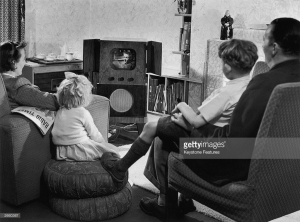University at Buffalo
Fall 2015

New Media
The paradigm shift from analogue to digital culture should be acknowledged as a defining aspect of postmodernism. A complex dynamics of incommensurability arises in periods of technological overlap. In the Kuhnian model the new paradigm supplants the practices and forms of the old and renders them obsolete. But a model of remediation suggests that all new media refashion and sublimate old media. The incommensurability of print and digital media incites creativity in—and thus disturbs, but does not eradicate—the older, established forms of literature. Modulations in the form of the novel—the concept of what a “novel” might consist of, how its structure as a bound codex might be manipulated—are provoked by the introduction of digital media. While photography did not supplant painting in the nineteenth century, its capacity for documentary detail compelled the artist to reexamine the conventions of mimesis, challenge the genteel rules of subject matter and foreground the painterly medium of color and light. In the twentieth century broadcast television arises as literary fiction’s dominant technological other. And yet TV’s one-to-many delivery of infotainment to a passive audience instigated an interactive, plural and multimodal print fiction. The disturbing presence of broadcast and digital media has not made the novel disappear; rather, new media has made the most compelling fictions those that generate associative logic instead of the causal sequence of plot, parallel processing instead of serial in discourse, and multimodal design instead of the block print page. The reader’s apprehension of the textual condition displaces the conduit metaphor of communication; reflexivity in the narrative dispels absorption in the text-world.

Memories of My Father Watching TV
During the seminar, we’ll alternate between readings of postmodern novelists who provocatively engage with the terms and conditions of information culture and theorists who invoke the surfeit of information and the hyperconnectivity that characterizes broadcast and digital media. We’ll begin with writers who question the antagonistic relationship between literary fiction and television as the dominant mass media in the postwar period, including David Foster Wallace’s “E Unibus Pluram: Television and U.S. Fiction” (1993) and “My Appearance” (1989); and Curtis White’s Memories of My Father Watching TV (1998). Next we’ll survey the advent of virtual reality (VR) in a selection of cyberpunk fiction including: Neal Stephenson’s Snow Crash, which features a Hiro Protagonist whose digital avatar pursues a virus capable of infecting the cerebral cortex; Pat Cadigan’s Synners (1991), in which the map of the mind becomes the territory of real space; and William Gibson’s Pattern Recognition (2003), which delves into the post-Cold War world of multinational corporate communications. Richard Powers’s Plowing the Dark (2000) switches between narratives that correlate the sensory deprivation of a hostage in an empty room in Beirut and the efforts of a Seattle-based group to project a virtual reality on the blank walls of “the Cavern.” We’ll finish with the Avant-Pop movement that splices the corruscations and convergences of the avant-garde and popular media culture in work by Larry McCaffery, Mark Leyner, Kathy Acker and Samuel R. Delany.

Pattern Recognition
Our fiction readings will be informed by excerpts from a variety of critical and theoretical texts on information culture, virtual reality and digital media, including: Espen Aarseth, Cybertext: Perspective on Ergodic Literature; Sven Birkerts, The Gutenberg Elegies; Jay Bolter and Richard Grusin, Remediation: Understanding New Media; David Ciccoricco, Reading Network Fiction; Joseph Conte, Design & Debris: A Chaotics of Postmodern American Fiction; Jane Yellowlees Douglas, The End of Books; Peter Freese and Charles B. Harris, ed. The Holodeck in the Garden: Science and Technology in Contemporary American Fiction; Donna Haraway, “A Cyborg Manifesto: Science, Technology, and Socialist-Feminism in the Late Twentieth Century”; N. Katherine Hayles, My Mother was a Computer: Digital Subjects and Literary Texts; Friedrich Kittler, Gramophone, Film, Typewriter; Michael Joyce, Of Two Minds: Hypertext Pedagogy and Poetics; George Landow, Hypertext 2.0: The Convergence of Contemporary Critical Theory and Technology; Janet Murray, Hamlet on the Holodeck: The Future of Narrative in Cyberspace; William Paulson, The Noise of Culture: Literary Texts in a World of Information; Mark Poster, What’s the Matter with the Internet?; Joseph Tabbi, Cognitive Fictions; and Paul Virilio, The Information Bomb.







